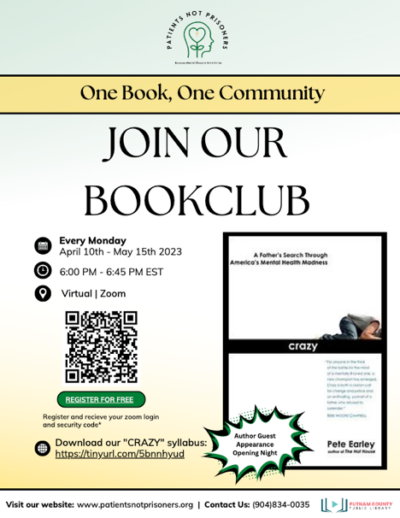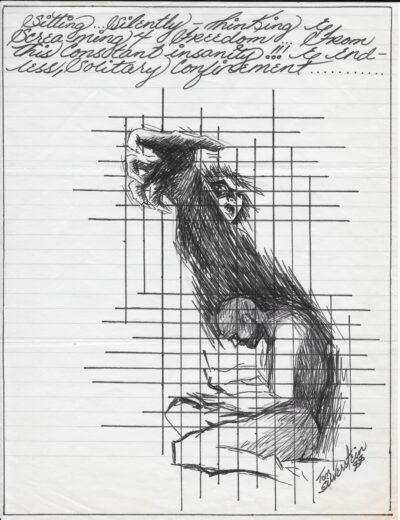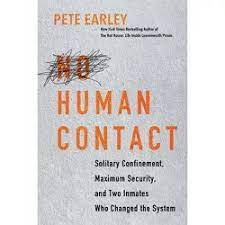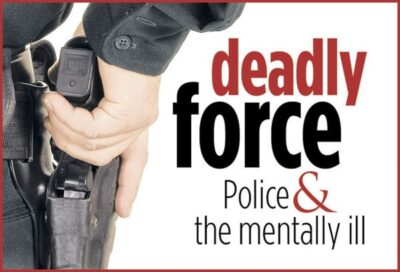
(4-11-23) A few months ago, I was contacted by Lisa Taliaferro, who was launching a new non-profit called Patients Not Prisoners based in St. Augustine, Florida. She’d read my book and wanted to use it to help draw attention to the inappropriate incarceration of Americans with mental illnesses.
What I didn’t know at the time was that Lisa Taliaferro, who has mental illness in her family, is an energetic and tireless advocate. Within a few weeks, she had gotten her fledging group off-the-ground and had begun planning community events.
I was excited last night to speak via Zoom to the first meeting of a book club that Lisa started. The group is studying, CRAZY: A Father’s Search Through America’s Mental Health Madness and hopes to use it to create discussions about why jails and prisoners have become warehouses for the seriously mentally ill and what communities can do to change this trend.
The zoom based book club is free and will meet every Monday from now until May 15th. Lisa wasn’t content just with starting a single book club. She developed a free study guide to use with CRAZY that can be downloaded and she is offering advice about how to start book clubs that will feature CRAZY and other books focused on mental illnesses and law enforcement.
“Patients Not Prisoners‘ goal is to bring communities and first responders together to create and capitalize on empathetic solutions to bridge the gaps of our current systems,” she told me.

 “Sitting silently thinking and screaming 4 freedom from this constant insanity and endless solitary confinement.” Drawing by Thomas Silverstein about being in isolation for years. (Copyrighted Pete Earley Inc.)
“Sitting silently thinking and screaming 4 freedom from this constant insanity and endless solitary confinement.” Drawing by Thomas Silverstein about being in isolation for years. (Copyrighted Pete Earley Inc.) 



